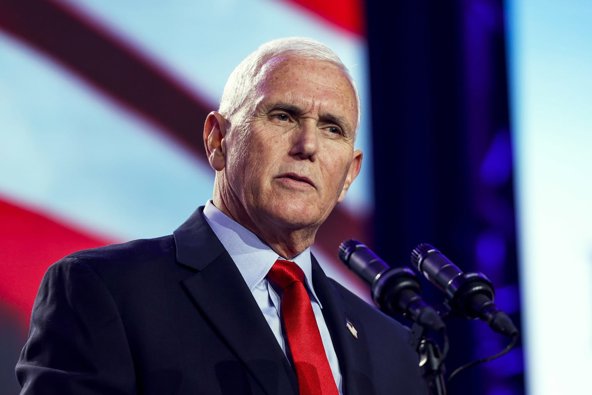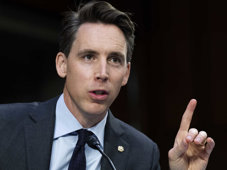
Pence Group Urges Changes to Trump Bill
Pence’s advocacy group urges GOP senators to remove provisions from Trump’s bill and expand reforms before final approval.
Conservative Group Seeks Revisions Before Senate Vote
Mike Pence’s conservative organization, Advancing American Freedom, is urging Senate Republicans to overhaul key portions of President Donald Trump’s sweeping legislative package. While the group supports the House version passed through the budget reconciliation process, its leaders argue that several provisions need to be removed or improved to ensure successful passage in both chambers.
In a letter sent to GOP senators, organization chair Marc Short and president Tim Chapman called for refinements that would eliminate politically sensitive elements and sharpen the bill’s fiscal impact. They emphasized support for the bill’s goal of making Trump’s 2017 tax cuts permanent and reducing federal spending, but also warned that certain provisions threaten its legislative survival.
“Even still, the Senate should build on the House’s hard work to perfect the One, Big, Beautiful Bill to deliver for the American people,” they wrote.
The group specifically urged lawmakers to consider repealing the state and local tax (SALT) deduction, eliminating subsidies tied to the Green New Deal, and further lowering the corporate tax rate from the 21% level established in Trump’s first term. They also pressed for striking any proposed increases to the federal debt limit, citing opposition from fiscal conservatives like Senator Rand Paul.
Advancing American Freedom praised the House for including reforms to Medicaid, cutting Planned Parenthood funding, and ending taxpayer money for gender transition surgeries. However, the group maintained that the Senate has an opportunity—and responsibility—to refine the package further.
GOP Faces Tight Margin, Conflicting Priorities
The House narrowly passed the bill with a 215–214 vote, leaving little room for error. Any significant changes in the Senate could unravel the fragile consensus that brought it through the lower chamber. Yet Senate Republicans are eager to inject deeper savings into the legislation, particularly with the national debt approaching $37 trillion.
Some proposed Senate changes could alienate key factions in the House. For example, blue-state House Republicans have vowed to oppose any reduction to the SALT deduction cap, while other senators remain divided over the timeline for phasing out clean energy incentives.
The stakes are high. The bill is a central component of Trump’s legislative agenda and serves as the primary vehicle to prevent the expiration of his first-term tax policies. According to Short and Chapman, failure to enact the bill could cost the average American household $2,100 in additional taxes.
“[The One Big Beautiful Bill] not only defuses the looming tax bomb,” they wrote, “it takes a first step toward entitlement reform, rebuilds the military, and ensures that our Border Patrol agents and Immigration and Customs Enforcement officers have the tools they need to secure the border and deport illegal aliens.”
As debate moves to the Senate floor, Republican leaders must navigate competing priorities from within their party to finalize a bill that fulfills Trump’s economic vision without splintering support in either chamber.






